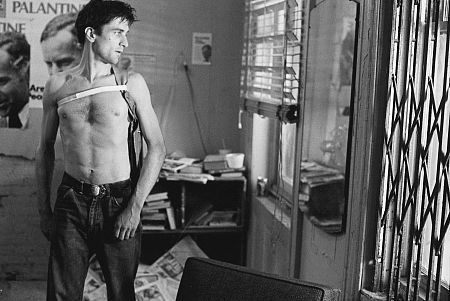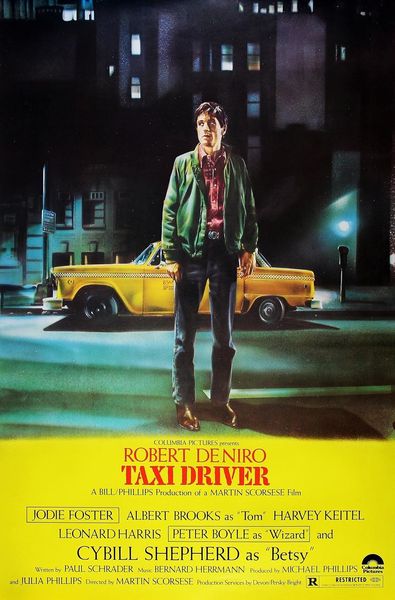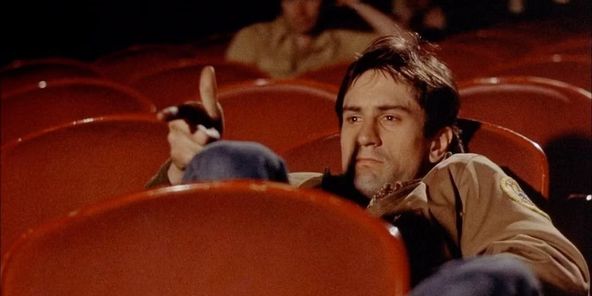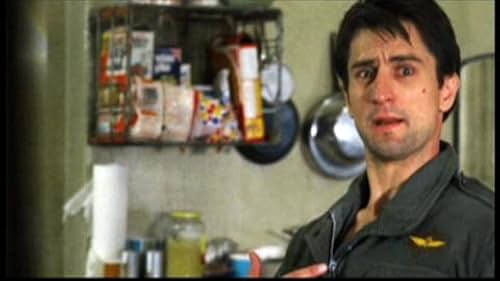
“Taxi Driver” (1976): A Gritty Exploration of Isolation and Urban Despair
Released in 1976, “Taxi Driver” is a landmark film directed by Martin Scorsese and written by Paul Schrader. Starring Robert De Niro as Travis Bickle, the film is a haunting exploration of loneliness, mental illness, and the search for meaning in a chaotic urban environment. It has since become a classic of American cinema and is widely regarded as one of Scorsese’s masterpieces.

The story follows Travis Bickle, a mentally unstable Vietnam War veteran who becomes a taxi driver in New York City. As he navigates the streets of the city, he becomes increasingly disillusioned by the moral decay and violence he observes. The film vividly captures the gritty atmosphere of 1970s New York, with its seedy underbelly and pervasive sense of alienation.

Travis’s isolation deepens as he struggles to connect with those around him. His interactions with passengers and other characters highlight his growing sense of paranoia and despair. Notably, his infatuation with Betsy (Cybill Shepherd), a campaign worker, and his attempts to connect with her further underscore his difficulties in forming meaningful relationships.

The film tackles themes of masculinity, violence, and the quest for identity. Travis’s transformation into a vigilante figure, culminating in a bloody confrontation, raises questions about morality and the extremes to which one might go in the name of justice. The iconic line, “You talkin’ to me?” encapsulates Travis’s internal conflict and descent into madness, as he rehearses confrontations in front of a mirror.

Robert De Niro delivers a powerful performance as Travis, capturing the character’s complexity and inner turmoil. His portrayal is both haunting and compelling, making Travis one of cinema’s most memorable antiheroes. The film also features notable performances from Jodie Foster as Iris, a young prostitute whom Travis seeks to save, and Harvey Keitel as Sport, her manipulative pimp.
Martin Scorsese’s direction is marked by its intense visual style and innovative use of sound and music. The score, composed by Bernard Herrmann, enhances the film’s mood, while the cinematography by Michael Chapman effectively conveys the stark contrasts of urban life. Scorsese’s ability to blend elements of thriller and character study creates a gripping narrative that remains impactful.
Upon its release, “Taxi Driver” received critical acclaim and won the Palme d’Or at the Cannes Film Festival. It was nominated for several Academy Awards, including Best Picture and Best Actor for De Niro. Over the years, the film has continued to resonate with audiences, often cited for its exploration of societal issues and the human condition.
In conclusion, “Taxi Driver” is a powerful and provocative film that delves into the psyche of a troubled individual navigating a corrupt and alienating world. Directed by Martin Scorsese and featuring a stunning performance by Robert De Niro, the film remains a poignant commentary on isolation, violence, and the search for redemption. Its enduring legacy solidifies its place as a crucial work in the canon of American cinema, prompting reflection on the complexities of urban life and the human experience.